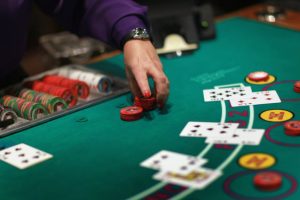 Friday evening put an end to any hopes for a gambling legislation in Florida, as lawmakers failed to agree on a bill before the end of the legislative session. Without the long-anticipated gambling package, it is unclear whether legislators will have an opportunity to work on this issue as the November ballot may give voters full control of future decisions regarding casinos and gambling.
Friday evening put an end to any hopes for a gambling legislation in Florida, as lawmakers failed to agree on a bill before the end of the legislative session. Without the long-anticipated gambling package, it is unclear whether legislators will have an opportunity to work on this issue as the November ballot may give voters full control of future decisions regarding casinos and gambling.
Republican leaders were willing to pass a legislation that would address gambling in the State of Florida, where it is practically illegal, with the exception of horse and dog tracks, and casinos owned by the Seminole Tribe of Florida. Members of the House and the Senate, however, could not agree on a law, as two separate bills, Senate Bill 840 and House Bill 7067, were proposed by the two legislative branches in the final days of the session.
By Thursday, the two opposing bills were in the conference committee, but lawmakers could not reach an agreement, which prompted their leaders to finally abandon the gambling legislation. In a joint statement, Senate President Joe Negron and House Speaker Richard Corcoran announced that a gambling bill would not pass the Legislature this session. In the statement, released Friday night, they also admit that this is one of the most difficult issues they have dealt with, but note that after all, some progress has been made during the past week.
In November, voters will be asked whether gambling-related proposals shall be sanctioned in statewide referendums. If such decision is made, lawmakers will no longer have control over laws about casinos and betting in the state, with voters having the mandate to approve or say “No” to any future gambling bills.
Despite the progress Negron and Corcoran talk about in their statement, however, the lack of new gambling legislation leaves the State without a new agreement with the Seminoles. That is expected to cost state coffers $300 million a year.
Ramifications Caused by the Lack of Gambling Legislation
 The most immediate concern for the State of Florida should be that the Compact with the Seminoles will not be renewed. The pact signed in 2010 gave the tribe exclusivity over offering banked card games such as blackjack but this particular provision expired in 2015, leading to long legal battles and efforts by lawmakers to strike a new deal with the Seminoles.
The most immediate concern for the State of Florida should be that the Compact with the Seminoles will not be renewed. The pact signed in 2010 gave the tribe exclusivity over offering banked card games such as blackjack but this particular provision expired in 2015, leading to long legal battles and efforts by lawmakers to strike a new deal with the Seminoles.
One of the biggest problems was the so-called player-designated games in pari-mutuels, which according to the tribe and the court decision, violated the tribal monopoly since they play much like blackjack. After Florida regulators promised to “aggressively enforce” the ban on player-designated games in all venues but Seminole casinos, the tribe announced it would maintain its revenue-sharing agreement with the state, paying $300 million a year as per the banked card games provision.
According to the 2015 court ruling, however, the tribe is free to withhold the payments to the state from March 31 and without a new deal, this could mean a budget loss of $300 million a year. No decisions have been made regarding the number of slot machines in tribal casinos, the proposal about the decoupling of greyhound racing, and about the legality of fantasy gaming.



















